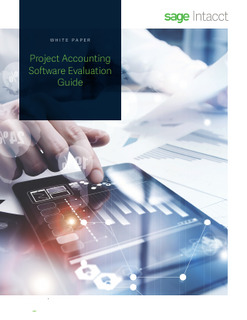Improve Project Profitability By Automating Project Accounting The Smart Way
As your professional or technical services company grows, the complexity of your business only increases. Soon, the simple, manual processes that served you well become time-intensive, draining your team’s productivity. You are taking on more projects and project types, expanding into new regions and industries, and adding lines of business. But this long-sought growth you’ve finally achieved can also bring greater headaches for finance.
That’s particularly true with project accounting. To profitably sustain your momentum, you need more information – and faster – than ever before. Which projects should you bid on? What prices should you charge for any given location or industry? What resources will you need to meet client deadlines?
Instead of analysing business strategies and delivering answers, you’re adding headcount just to copy data from the CRM system to your accounting system. Your delivery team is managing time and expenses in Microsoft Excel because they can’t remotely access the time-tracking system. You’re spending countless hours creating invoices to meet specific requirements that differ from client to client and project to project. And without timely visibility, you can’t make the right decisions based on profitability by project, customer, or industry.
How can you meet today’s project-accounting challenges? It starts with a modern, project-centric accounting solution that offers the automation, scalability, and visibility you need. But as you evaluate your options, what factors are most important? The following list provides the essential attributes you need to look for when evaluating a project accounting software.

